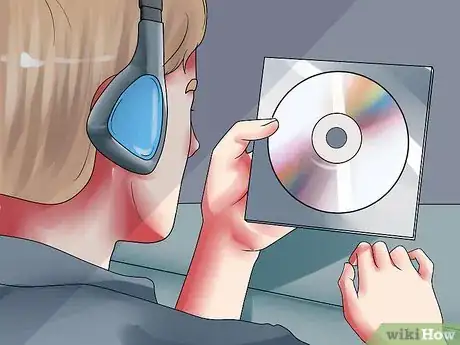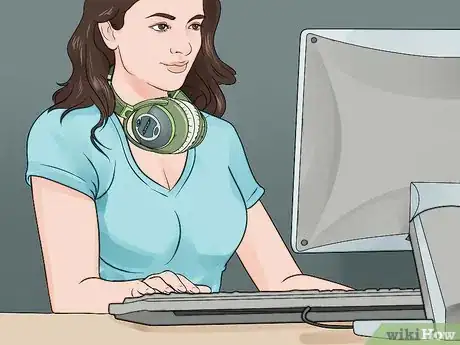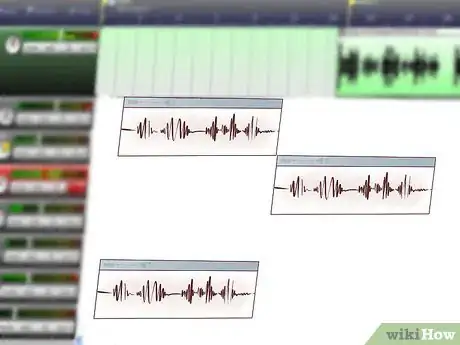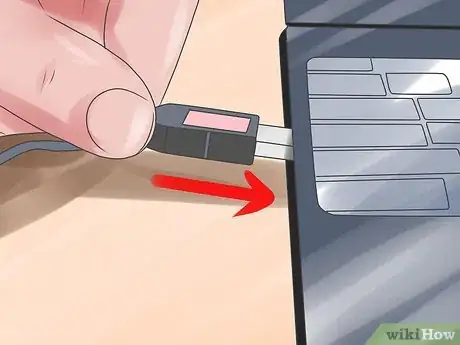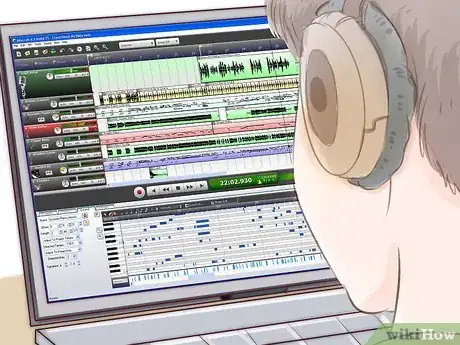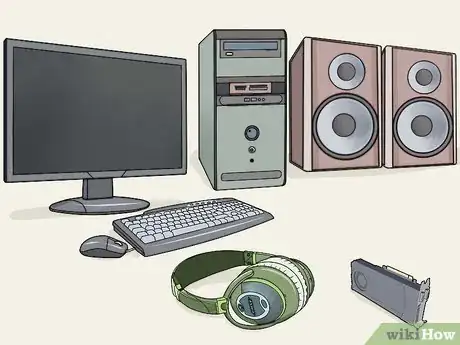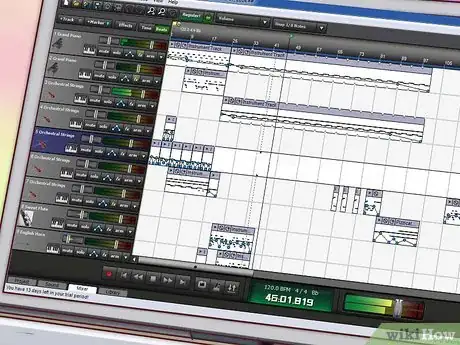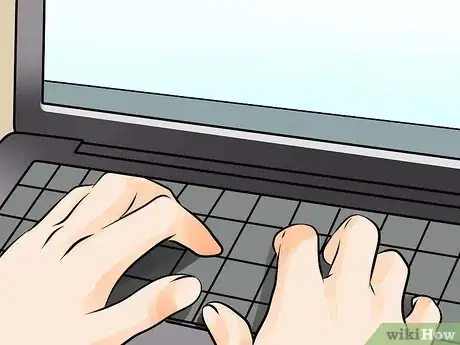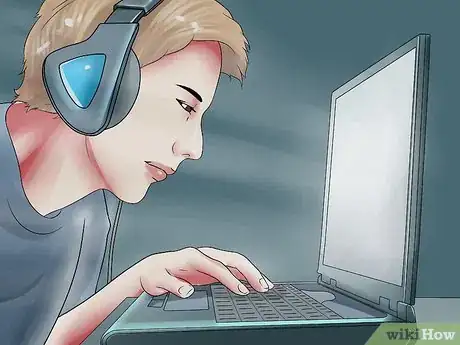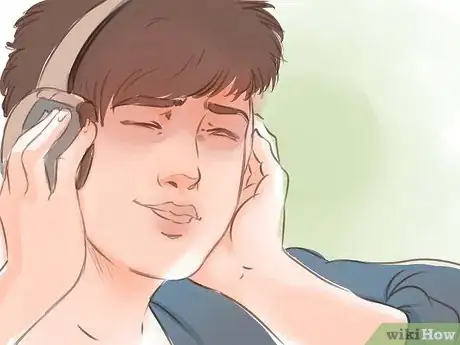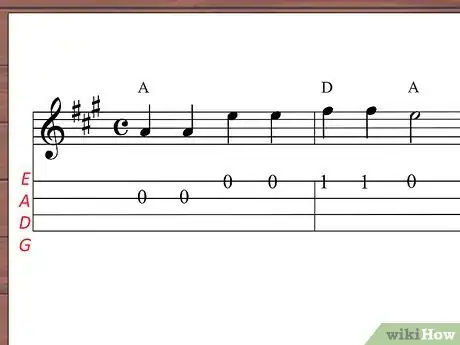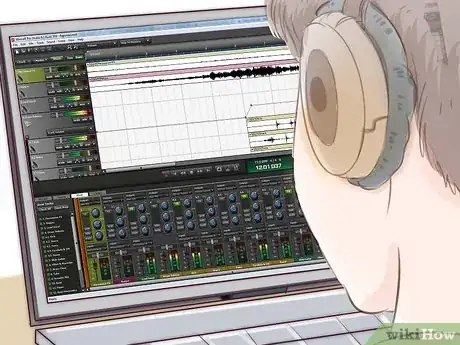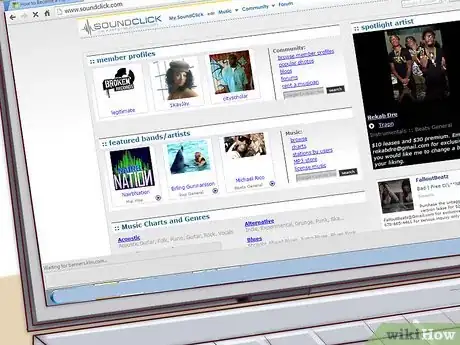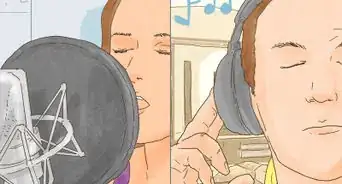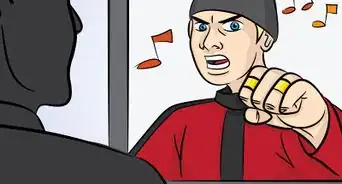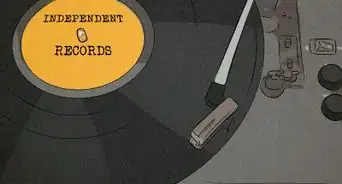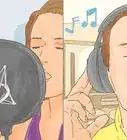wikiHow is a “wiki,” similar to Wikipedia, which means that many of our articles are co-written by multiple authors. To create this article, volunteer authors worked to edit and improve it over time.
wikiHow marks an article as reader-approved once it receives enough positive feedback. In this case, 92% of readers who voted found the article helpful, earning it our reader-approved status.
This article has been viewed 31,903 times.
Learn more...
Deciding you want to be an electronic music producer can be very exciting and spark lots of creative ambition, but it can be all too easy to rush in and end up feeling overwhelmed. Follow these steps to help you get started and eventually get where you want to be!
Steps
Knowing What You Want to Produce
-
1Know exactly what genre of electronic music you want to produce. There is a lot of variety in electronic music, and many different genres and styles to choose from. Be it house, trap, ambient or dubstep, it’s up to you whatever sound you are going for. It’s a good idea to listen to a lot of electronic music before you make up your mind, so that you know what sort of music gets you the most excited, or you understand the most.
- Alternatively, you can ignore genres completely and make something new and exciting, however this is very difficult and is best done with prior experience producing other genres.
-
2Do some research on different artists. If you find yourself focussing on one genre in particular, this will help you to know what you are going to write when you first start. Do some research on artists relevant to your chosen genre by listening to songs, reading interviews/article and reading reviews. This will help you to know what inspires them to write songs, how they go about the process and how they began producing electronic music.
- Some examples could be for Skrillex, Flux Pavilion, and Barely Alive for dubstep; for house Deadmau5, Disclosure, Avicii and for trap Diplo, Jack Ü, DJ Snake etc.
- Also with a new genre rising known as Future bass, you can Look up to Alan Walker, or Even Martin Garrix or even The Chainsmokers who produce Trap music as well!
Getting Your Software
-
1Get a Digital Audio Workstation (DAW). A DAW is the fundamental piece of software used to arrange, sequence and compose songs, as well as contain and connect all the plugins (instruments/effects) used to create your songs. Do some research into the pros and cons of different DAWs.
- If you are stuck deciding, research what DAWs your favourite artists use and which DAWs are most popular with your chosen genre. Examples of popular DAWs include: Cubase, Ableton Live, Logic Pro (OSX only) and FL Studio (Windows only).
- For Beginner Music producers I would Highly recommend the FL Studio, the fruity edition which only costs $99 is great to begin!
-
2Invest in some plugins. A plugin (sometimes referred to as a VST as this is a common format) is a software instrument or effect you use in conjunction with a DAW to create, edit and manipulate sound. You may need to invest in plugins such as synthesisers, mixing/mastering effects and samplers.
- Many plugins are not essential, but can help you to create interesting sounds to give your songs an interesting and unique edge. Also, many DAWs come with their own plugins, so you may not need to purchase any of your own.
- If you can really save or get some money, you can buy the reFX Nexus! It is used by almost all the DJs and music producers! It costs $249 but carries the value! Visit there official website here refx.com/nexus/
Getting Your Hardware
-
1Get a suitable computer. You need to make sure your computer has good enough specs and capabilities to handle the processing you will need to make your music. Most producers don’t need a massively powerful computer, but it depends on the sort of techniques and sounds you want to produce. To begin with, your processing will most likely only be basic, so a high end computer is not essential from the get-go.
- But these days at least some minimum requirements are needed to run DAWs and VSTs. They are listed below:
- Intel Core i3 processor
- RAM 4GB
- Graphics Memory 1GB
- Storage depends on how much of software you use but a minimum 500GB is needed.
- But these days at least some minimum requirements are needed to run DAWs and VSTs. They are listed below:
-
2Acquire a sound system. Aside from just a computer, you will need to have some sort of hardware with which to monitor and listen to what it is you are creating. Getting the best sound quality is important to having a professional and polished sound. This means you should be willing to spend considerably more money on this than you would for general listen to music. For this you will either need headphones or studio monitors (speakers).
- Many people prefer monitors and will claim they allow for better clarity and accuracy, but good headphones are generally cheaper than good monitors. Do some research before you buy to see the pros and cons of each. Popular brands of monitors include KRK, Yamaha and M-Audio. Popular brands of headphones include Sennheiser, Audio-Technica and AKG.
-
3Invest in some non-essential hardware. This can include hardware that will make producing music easier, but is not necessarily essential to making music. Non-essential items of hardware (for electronic music) could include: audio interfaces, microphones, MIDI controllers/keyboards and hardware synthesisers/processors.
- Many people claim the sound generated from hardware synthesisers is superior to any software plugins, but this is a matter of taste, and the average listener won’t notice (plus hardware synthesisers can be very expensive).
Learning to Use Your Gear
-
1Learn your way around your DAW. The most essential step to effective music production is knowing how to get the most out of your software, and this is especially true for your DAW. Learning to use a DAW can seem very daunting for first-time producers and can sometimes put people off making music all together. However, once you can use your DAW effectively, making music becomes so much easier.
- Make sure to thoroughly read the manual for your DAW. This will help you to come to grips with the official functions and uses of different aspects of your DAW, as well ways of using your software according to the people that designed it.
- Watch tutorials on using your DAW on YouTube. YouTube can be an invaluable resource when it comes to learning music production, as there are many high quality tutorials available for free, for varying levels of expertise.
-
2Learn to use your plugins. Learning to use your plugins, particularly for synthesis, can be one of the most daunting tasks of learning to produce music. This is especially true as many plugins pride themselves on having a unique and intuitive way of working. This will require a similar approach to learning to use a DAW. Once again, read the manual and make use of tutorials on YouTube. Also, most plugins come with a wide range of presets that will allow you to make good music without being overwhelmed with an array of knobs and switches.
- Most of all don't give up as controlling the presets with a single mouse may be hard and confusing at beginning but the more you will practice, the better you will be! Do not worry, You will sure get the hang of it!
-
3Learn to use your hardware. Learning to use hardware is generally much easier than software, as long as you don’t have anything too complex such as synthesisers. Things such as connecting up MIDI keyboards and audio interfaces are usually fairly easy to figure out.
- The only problem you may run into when setting up hardware is positioning studio monitors, as this will have a strong impact on the sound that they produce. A general rule is to have them pointing directly toward your ears at head height. Also try to position the monitors so that they form an equilateral triangle with your head.
Producing Your First Song
-
1Know what you want to produce. This links to the first part of the article, and if you already have a good plan of where you want to go this should be fairly easy. Start off by listening to lots of electronic music. This doesn't necessarily have to be from your chosen genre, as it can be good to bring in ideas and influences from other genres as well. If you are struggling, try writing down features from songs that you really like and implementing them into your own track
-
2Have a basic knowledge of music theory. This part may seem boring, but having a basic understanding of music theory will massively help you in writing catchy songs and doing it quickly and easily. Just a small amount of knowledge on melody and chords can really help you write a decent tune. If you struggle with composing melodies, try to replicate melodies from popular songs as accurately as you can in your DAW, as this will help you to understand how melodies are constructed.
-
3Write your song. Sometimes when you are fed up of all this learning and preparation, the best thing is to just have a go. Remember, your first song will most likely be terrible, but that doesn't mean you shouldn't be proud of it. Everyone's first song will sound amateur, and even the most professional producers will have been at this stage at some point, just keep producing songs and improving. Getting to a professional standard can take years.
-
4Share it! Once you have made your masterpiece, show it off to the world. Upload it to the internet, put it on YouTube, Soundcloud and share it with your friends. Be proud of what you have done and don't worry if you think people won't like it, you should be proud that you made a song all by yourself!
Community Q&A
-
QuestionTo become an electronic music producer, do I need to know how to play the keyboard?
 Community AnswerA knowledge of the piano is not necessary when it comes to being a producer, however it is definitely helpful. Most of the "big name" producers nowadays play instruments. A good knowledge of music theory is important, as it will help to understand how exactly music works.
Community AnswerA knowledge of the piano is not necessary when it comes to being a producer, however it is definitely helpful. Most of the "big name" producers nowadays play instruments. A good knowledge of music theory is important, as it will help to understand how exactly music works. -
QuestionI want to be a DJ music producer in he EDM genre. What type of app should I use in laptop to produce EDM, and how do O collaborate with a current artist?
 Community AnswerDon't use any of the really bad online beat-making software on the internet, it's better to invest in a good DAW (Digital Audio Workstation) such as, Reason, Ableton and FL Studio. Connect with people via SoundCloud, direct message them and send them your songs. Once you've gained roughly a good audience and popularity size, email DJs like Oliver Heldens or Don Diablo that run successful radio shows (Hexagon Radio, Heldeep Radio). Artists who have a good audience and the genre that matches your style is generally your best bet.
Community AnswerDon't use any of the really bad online beat-making software on the internet, it's better to invest in a good DAW (Digital Audio Workstation) such as, Reason, Ableton and FL Studio. Connect with people via SoundCloud, direct message them and send them your songs. Once you've gained roughly a good audience and popularity size, email DJs like Oliver Heldens or Don Diablo that run successful radio shows (Hexagon Radio, Heldeep Radio). Artists who have a good audience and the genre that matches your style is generally your best bet.
Warnings
- Make sure you thoroughly research any software/hardware that you want/need to purchase. Rushing into an investment such as this can end up with you having something you didn't want and having wasted a lot of money!⧼thumbs_response⧽
